Relevant Overviews
- Bluesky and the ATmosphere
- Communication Strategy
- Content Strategy
- Fediverse
- Online Strategy
- Online Community Management
- Social Media Strategy
- Content Creation & Marketing
- Digital Transformation
- Change & Project Management
- Thinking tools
- Blockchain, Crypto, NFTs etc
- Personal Productivity
- Innovation Strategy
- Communications Tactics
- Psychology
- Social Web
- Media
- Politics
- Communications Strategy
- Science&Technology
- Business
- Large language models
"Standard.site provides shared lexicons for long-form publishing on AT Protocol. Making content easier to discover, index, and move across the ATmosphere" - by the makers of leaflet, pckt & offprint - a good example of how builders can just collaborate on the ATmosphere without drama: "The standard grows when builders identify shared needs and ali…

Misinformation is "a problem, but not the most important one. The fundamental problem... is not that social media misinforms individuals about what is true or untrue but that it creates publics with malformed collective understandings".while democracy "is a profoundly collective enterprise", we see it as the sum of individuals' knowledge and decis…
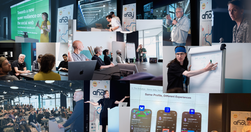
In late April I was in Hamburg for Ahoy! 2025, the first European conference dedicated to the ATmosphere — the information ecosystem built atop of ATproto, the protocol underpinning Bluesky.
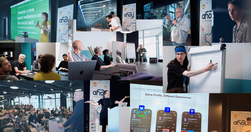
In late April I was in Hamburg for Ahoy! 2025, the first European conference dedicated to the ATmosphere - the information ecosystem built atop of ATproto, the protocol underpinning Bluesky. I proposed a couple of ideas for the unconference sessions, and came away with content for at least 5 posts, none of which I've found time to write.
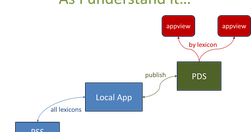
Some thoughts on how Groundmist supports the ideas I'm developing for decentralised collective intelligence, written in preparation for an online workshop with the Groundmist developer and other interested people.
When I saw this "Open space proposal by Boris (Mann) at Ahoy" I shelved my very similar proposal and proposed another, which was successful (good news) and scheduled at the same time as Boris' (bad news).Boris' idea is essential, imho, to my ideas for decentralised collective intelligence - a "long form, Markdown lexicon Designed to work with digi…
Boris Mann's personal notes on what he wants for what is essentially the private garden segment of #ai4communities: a "multi-player personal notes & publishing stack", a place to put "meeting notes, quick scratch notes, pages on their way to be published, links and a few comments, research from multiple web pages... your companion for research, pr…
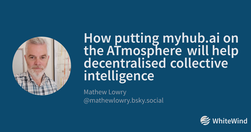
"How would MyHub.ai evolve to become part of the ATmosphere?" - One of my suggested conversation topics at the Ahoy conference, April, 2025.

Shawn Murphy channelling his inner Vulcan as he describes what happens when "two people only are having a conversation ... a particular magical thing ... call it Mind Melding". This is something similar to shared mental map, an idea I borrowed from England's relatively famous footback coach in the 1990s. But this isn't football: "Mind Melds are de…
"This post was extracted from the draft of my December newsletter and published on Whitewind, demonstrating how a new array of apps on the ATmosphere - the ecosystem built with ATProto, Bluesky's protocol - could potentially usher in seamless decentralised collective intelligence."
"I usually circulate my newsletter to its subscribers via Mailchimp before reposting it to Medium for my subscribers there. However, for this edition I posted this content from Obsidian, my notemaking tool, direct to Bluesky's Atmosphere. It's early days, but I think this augurs well for decentralised collective intelligence."
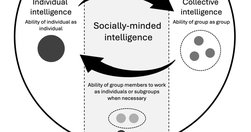
Via Ross Dawson on LinkedIn: "A core part of human intelligence is the ability to work flexibly with others to achieve both individual and collective goals". Unfortunately, intelligence is usually considered as a property of individual or collective, never both, and so "not in a way that can be used to understand how groups can make group members …
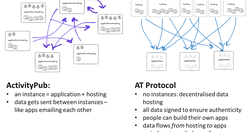
My mid November 2024 newsletter summarises how a deep dive into Bluesky has changed how I view #AI4Communities, and summarises some of the most influential things I've read recently.

"AI can not only improve short-term productivity of organizations but can also ... increase the organization’s collective intelligence."HBR starts well by pointing out the false dichotomy between thinking "about AI in terms of automation vs. augmentation... Augmentation doesn’t avoid automation, it simply hides it, usually in some lower-level". Ex…
"As AI-generated content blurs the line between human and machine online, “model collapse” might help us find new value in well-managed human communities."
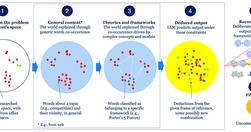
How to use LLMs to solve "really hard problems"? The "AIdeas Collider" approach, piloted by Head of Innovation Design at MIT's Collective Intelligence Design Lab.
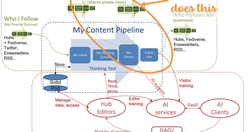
A repost of one of my experiments with the massive.wiki team, where we "developed an approach ... which simultaneously enriches blogging by adding some of the best aspects of wikis, and allows wikis to better host something resembling blogs."
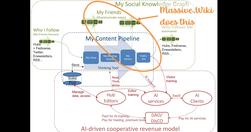
A quick video

Wired's rules for using generative AI: "Not for images, yes for research, no for copyediting, maybe for idea generation". Meanwhile interactive book PromptCraft shows how to "get the most out of the creative man/machine communications... AI is like querying our collective intelligence".So how best to design an AI prompt? Start "by breaking down …

Defining collective intelligence as "Effective, decentralized, and agentic decision-making across individuals and communities to produce best-case decisions for the collective.", this is "an incubator for new governance models for transformative technology" which wants to "overcome the transformative technology trilemma", which sees "significant t…
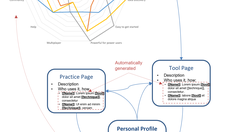
A pilot project to help bootstrap decentralised collective intelligence
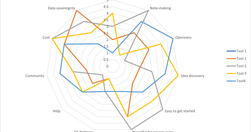
The last of my 1/1/2023 bundle of 5 posts introduces a first pilot project into exploring and demonstrating decentralised solutions to collective intelligence.The knowledge domain is Tools for Thought (TfTs), so the end result will be a map of the TfT landscape, which "is forbidding to newcomers, with software still aimed at early adopters, and th…
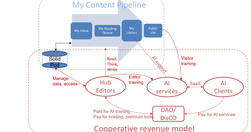
The 3rd part of my 1/1/2023 bundle of 5 posts looks at how AI could turbocharge collective intelligence "and finance the resulting ecosystem, providing an alternative to Big Tech AI monopolies".
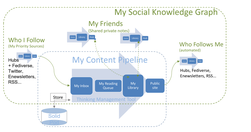
The second in my 1/1/2023 bundle of 5 posts exploring collective intelligence looks at the role of decentralised social networks: "A personalised, decentralised Social Knowledge Graph for each user multiplies the knowledge available to them via a trusted network of Followers and Friends, and creating collaborative possibilities more akin to wikis …
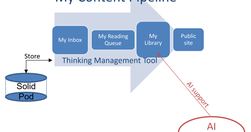
The longest of my 1/1/2023 bundle of 5 posts asks "What would a Tool4Thought designed to support decentralised collective intelligence look like?"While it explores some of the key features I'd like myhub.ai to offer, it also recognises that creating decentralised collective intelligence will require multiple, interoperable software, so rather than…
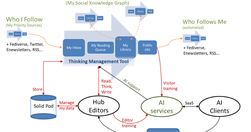
The "executive summary" of my 5-part bundle of 1/1/2023, which "provide a snapshot of my current thinking into how a decentralised collective intelligence ecosystem could be bootstrapped into existence."
"Micro.blog can now cross-post to a Mastodon user account... Your custom domain on Micro.blog can now be ActivityPub-compatible, so that you can follow and reply to Mastodon users directly on Micro.blog ... someone can follow your blog posts".As a result "you can consolidate your identity and posts back to your own blog at your own domain name..…
As mentioned in my previous newsletter, I've been thinking a lot over the past year about bootstrapping decentralised collective intelligence. The resulting framework is set out in three blog posts, summarised in a fourth, with a fifth announcing the first pilot project.
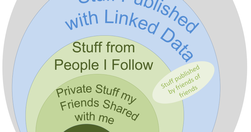
Four posts encompassing the end of my part of the PKG Book, the upcoming launch of a collective intelligence pilot, getting to grips with the Fediverse and having a chat with ChatGPT.
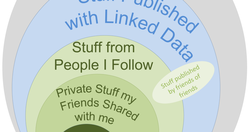
Writing a chapter for a book on Personal Knowledge Graphs made me rethink MyHub.ai, and led to a new collective intelligence pilot project with the founders of massive.wiki.
Relevant Overviews
- Bluesky and the ATmosphere
- Communication Strategy
- Content Strategy
- Fediverse
- Online Strategy
- Online Community Management
- Social Media Strategy
- Content Creation & Marketing
- Digital Transformation
- Change & Project Management
- Thinking tools
- Blockchain, Crypto, NFTs etc
- Personal Productivity
- Innovation Strategy
- Communications Tactics
- Psychology
- Social Web
- Media
- Politics
- Communications Strategy
- Science&Technology
- Business
- Large language models